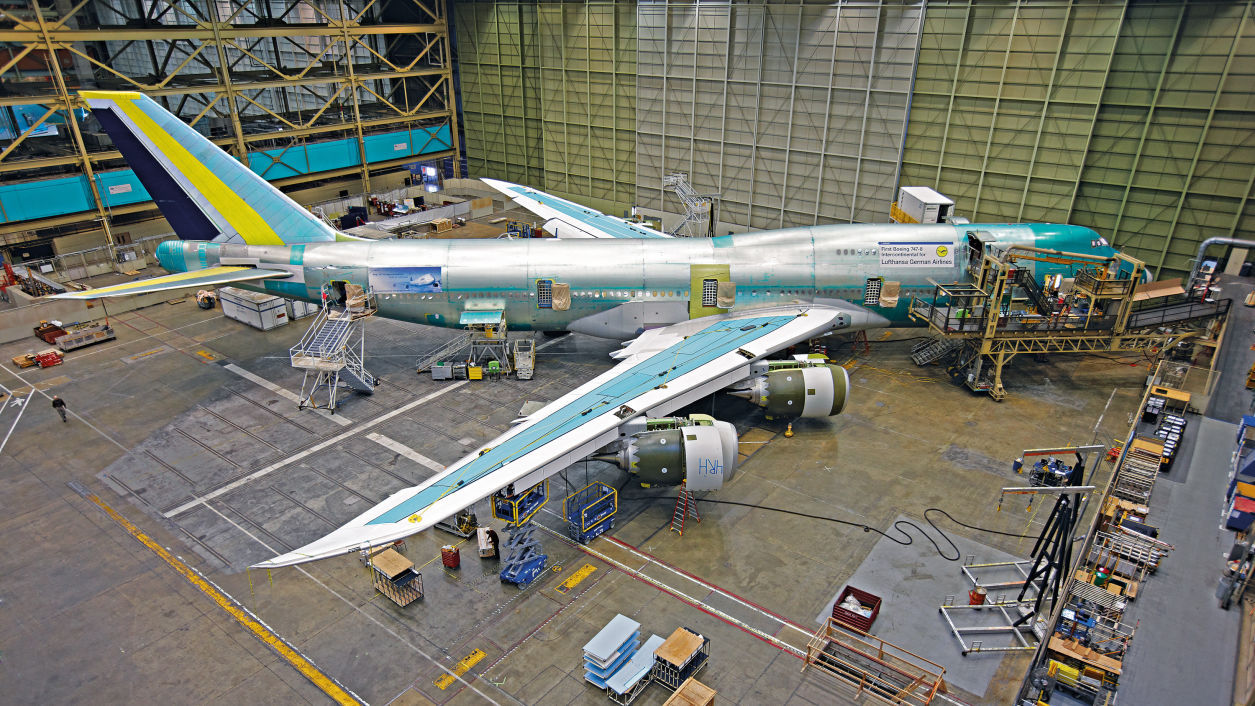
A furious internal debate at Boeing over the future of the 747 program will either extend the life of the program or end it by 2022.
Supply Concerns Threaten Future Of Boeing 747 Program
The problem is Triumph, which has created 747 fuselage and horizontal stabiliser (tailplane) panels for Boeing over 50 years. It has plants in California and Texas that roll out these parts. Earlier this year, Triumph announced it had delivered its last 747 fuselage and began to shut down the two plants.
Although Triumph has supplied Boeing with sufficient panels to complete the production backlog, Boeing must now seek a new partner if future production is to continue. FlightGlobal reports that Boeing has internally decided that it needs at least 100 additional orders for this to be worthwhile. That seems out of reach at this point, even with COVID-19 hitting cargo operations far more lightly than passenger operations.
Were the 747 to retire, some carriers might be left scrambling for an ideal cargo solution since the next largest civil freighter, the Boeing 777, lacks the space and versatility of the 747. The Boeing 747-8F has a greater payload (138 feet versus 102 feet) than the 777F and offers a nose-loading cargo option.
FlightGlobal further reports that two customers recently approached Boeing over potential new 747-8F orders and never heard back.
747 Program Will Continue Through At Least 2022
Currently UPS is awaiting the delivery of 13 additional 747-8F, which will provide it a fleet of 28 total aircraft. Boeing produces one 747-8F every two months, putting the final UPS delivery on track for 2022.
The issue is more than just production, though, but about maintenance and spare parts. Boeing has also not been clear on how it will service existing models if production is phased out. Airbus is facing similar questions over its A380 program.
Boeing provided a non-answer answer to FlightGlobal on the future of the program:
“We are continuing to build 747-8s to meet the backlog of orders for the airplane and will continue to make the right decisions to keep the production line healthy. With production slots filled for several years, we are working closely with our suppliers and have plans in place to support 747-8 production to meet our customer commitments.”
CONCLUSION
The 747 remains my favorite aircraft in the sky and I would hate to see it fully retired. While Triumph could potentially resume production if sufficient orders came in, it appears unlikely at this point. Sadly, 2022 may be the death knell of the 747 program.
image: Lufthansa




It is quite depressing to think 747 will not be criss-crossing our skies as passenger Liners in near the numbers that they did a decade ago but at least it will still carry on is a freighter and will be able to be seen more sporadically still flying that’s an option that A380 doesn’t really have economics usually always wins out then after 40 plus years twin Jets are as reliable as for and so much more economical to operate it sounds cold but it’s a pretty straightforward eventuality with the advancement of Technology twin Jets can pretty much do what it took for jets to do 30 and 40 50 years ago I guess it’s better to have had it for 50 years and see if they’d away than to never have had it at all love the queen of the Skies
With all of the passenger 747s being retired by airlines, maybe Boeing should buy back, refurbish and modify late-model 747s as freighters. These “remanufactured” freighters should be quite a bit cheaper than new-build aircraft, although they would likely have shorter remaining lifespans.
Nice thinking outside the box!
Whaaat? Boeing should have bought some extra fuselage parts. 100 additional orders is not realistic even if there is a 747-9F. Boeing should have done the calculations and maybe ordered 12-20 fuselage parts. However, they might not have wanted to because it hurts the short term balance sheet and because other suppliers will want the same deal.
This also means that UPS won’t be ordered 2 more planes, for example, even if it saw a need for them. It’s 100 or nothing or maybe 80 or nothing.
It was good while it lasted 1970-2022, 52 years.
air cargo is not consistent with agenda 2030. Air cargo will be severely restricted with all passenger flights to slow carbon emissions. But biz jet going to Davos will be exempt from all regulations. As long as owners maintain their 1% designation.
Matthew, I really like your new pic. Very nice.